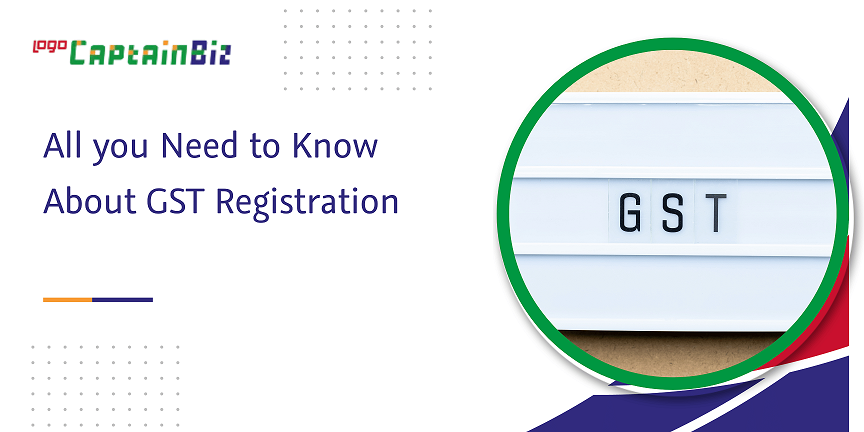Optimize Your Cost Savings with the very best GST Registration Services in Singapore
Optimize Your Cost Savings with the very best GST Registration Services in Singapore
Blog Article
From Beginning To End: The Ultimate Roadmap to GST Registration for Organizations Looking For Financial Stability
Navigating the complexities of Goods and Services Tax (GST) enrollment is a vital action for companies making every effort for financial security. Damaging down the roadmap right into manageable actions can simplify the registration trip for businesses looking to boost their monetary standing.
Comprehending GST Basics
Digging right into the basic principles of Item and Services Tax (GST) is essential for gaining a comprehensive understanding of its implications on businesses and the economic situation. Input Tax Debt (ITC) is a considerable function of GST, enabling companies to claim credit for tax obligations paid on inputs, lowering the overall tax obligation concern. Comprehending the essentials of GST is essential for businesses to abide with tax policies, manage their financial resources successfully, and add to the nation's financial growth by taking part in a clear tax obligation system.
Eligibility Requirements for Registration
As of the current laws, the threshold limit for GST enrollment is an annual accumulation turn over of 40 lakhs for organizations operating within a state, except for special category states where the limit is 20 lakhs. Furthermore, specific companies are required to register for GST regardless of their turn over, such as interstate vendors, laid-back taxable persons, and services liable to pay tax under the reverse charge system. It is vital for businesses to extensively examine their turnover and transaction types to identify their GST enrollment obligations accurately.
Files Needed for Registration
Having actually satisfied the eligibility criteria for GST enrollment, services have to currently guarantee they have the requisite papers in position to continue with the enrollment process efficiently. The documents required for GST registration usually include proof of organization constitution, such as partnership deed, enrollment certification, or unification certification for various sorts of organizations. Additionally, companies require to provide papers establishing the primary area of organization, such as a rental agreement or power expense. PAN card of the company, along with the identification and address evidence of promoters/partners/directors, are necessary for confirmation functions. Savings account statements, together with canceled cheques or a copy of the financial institution passbook, are called for to validate the economic details provided throughout enrollment. Moreover, organizations should have electronic signatures prepared for the licensed notary. Making certain all these records are arranged and readily offered will certainly expedite the GST registration procedure, making it possible for businesses to comply with tax policies flawlessly.
Step-by-Step Registration Process
Commencing the GST registration process includes a you can try this out collection of organized actions to make certain a seamless and certified registration site web for companies. The initial step is to visit the GST site and complete the enrollment kind with exact information of business entity. Following this, the candidate receives a Temporary Recommendation Number (TRN) which is used to resume the application procedure if it's not finished in one go.
Next, all needed papers according to the checklist supplied by the GST portal requirement to be posted. These papers commonly consist of evidence of organization address, enrollment and identification evidence of marketers, financial statements, and company entity's PAN card.

Post-Registration Compliance Standards

Conclusion
Finally, organizations looking for economic stability must recognize the basics of GST, meet qualification standards, gather essential files, comply with the detailed registration process, and abide by post-registration guidelines - Best GST registration services in Singapore. By sticking to these steps, companies can make certain conformity with tax obligation regulations and preserve monetary stability in the long run
Additionally, particular businesses are called for to sign up for GST irrespective of their turnover, such as interstate providers, casual taxed persons, and companies accountable to pay tax under the reverse cost system.Having met the qualification standards for GST enrollment, services should now ensure they have the requisite records in location to continue with the registration procedure effectively. The records required for GST enrollment typically include proof of organization constitution, such as partnership action, registration certification, or consolidation certification for various types of companies. Additionally, companies need to give records developing the principal location of company, such as a rental contract or electrical power bill.Beginning the GST enrollment process entails a collection of organized actions to guarantee a compliant and seamless registration for services.
Report this page